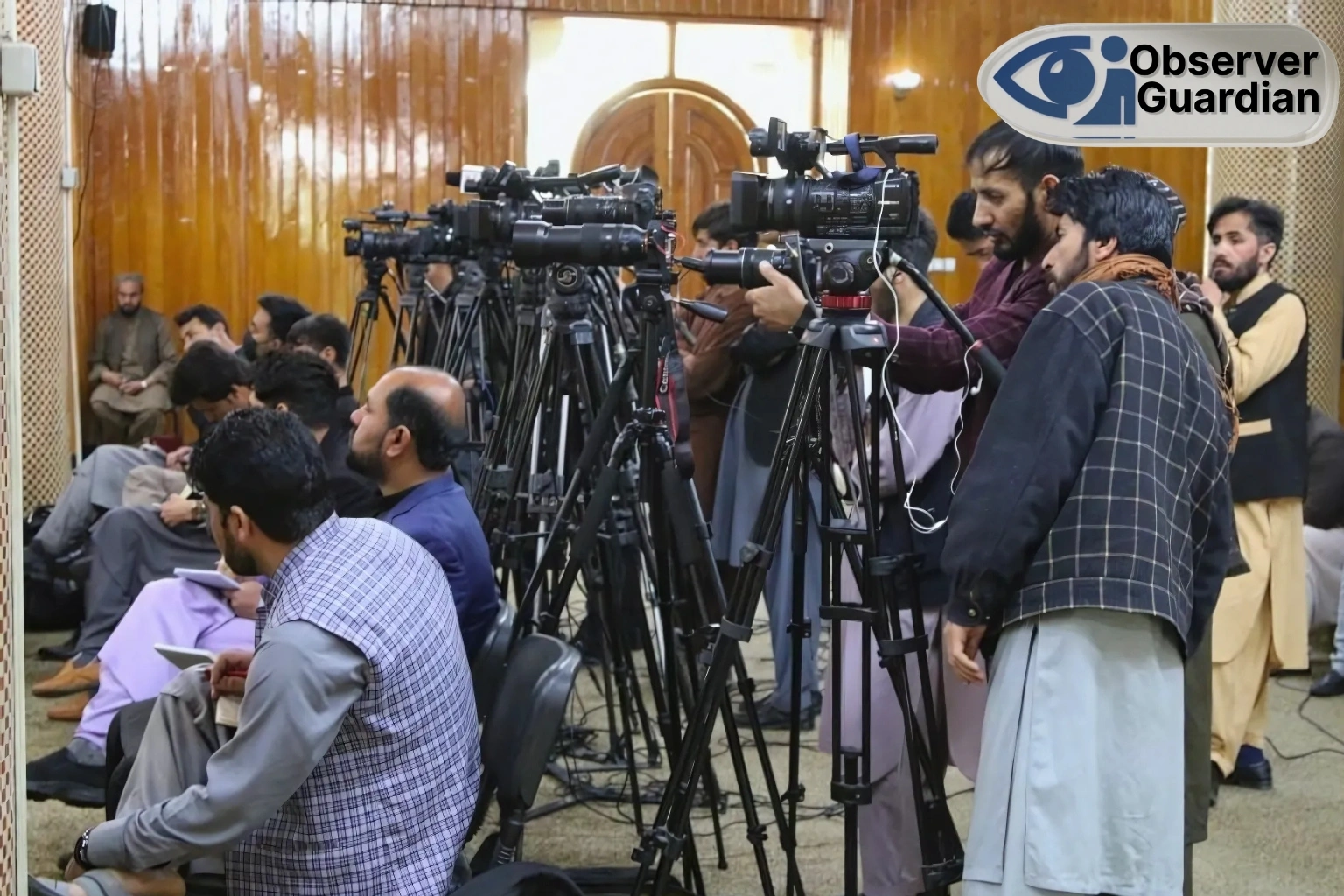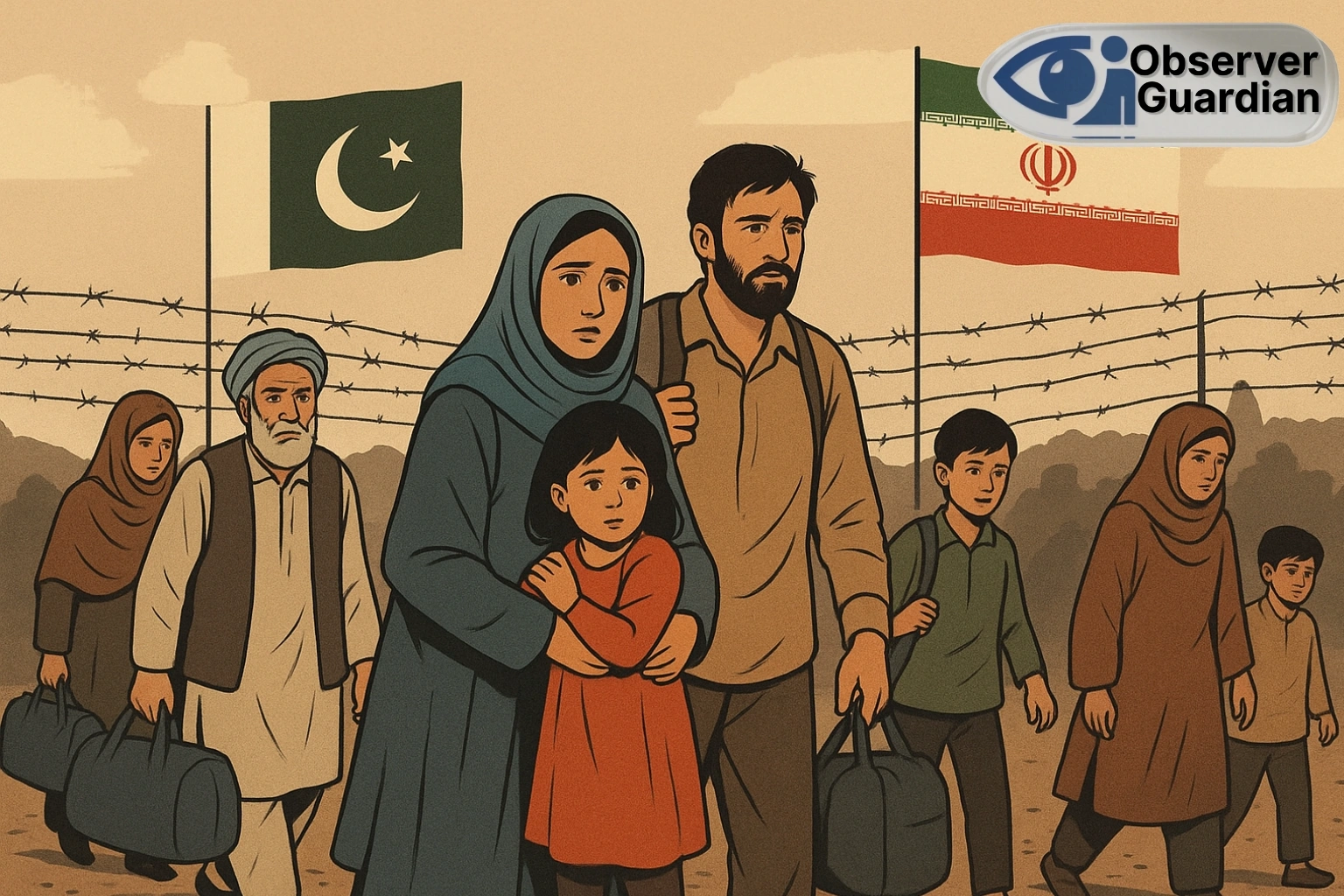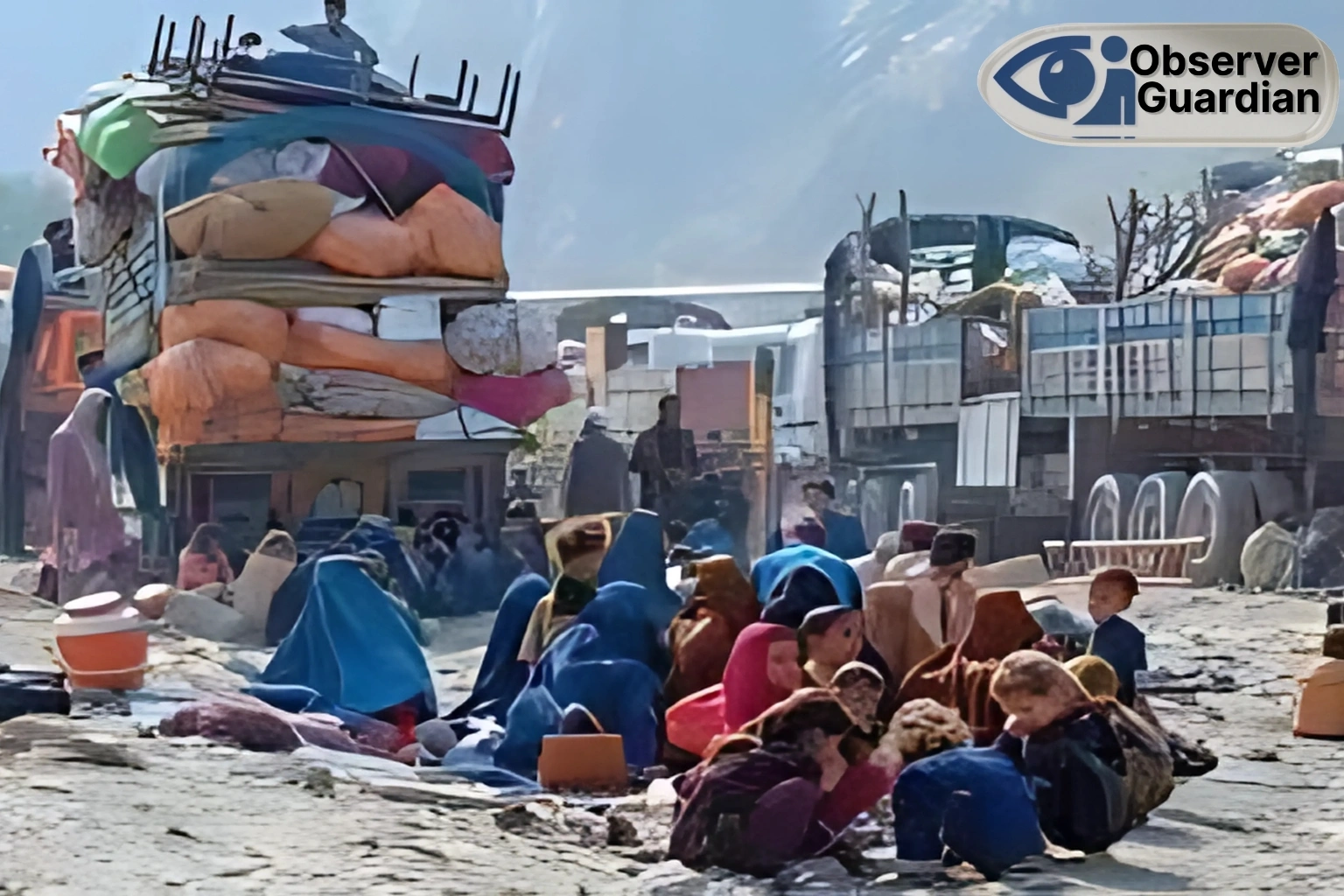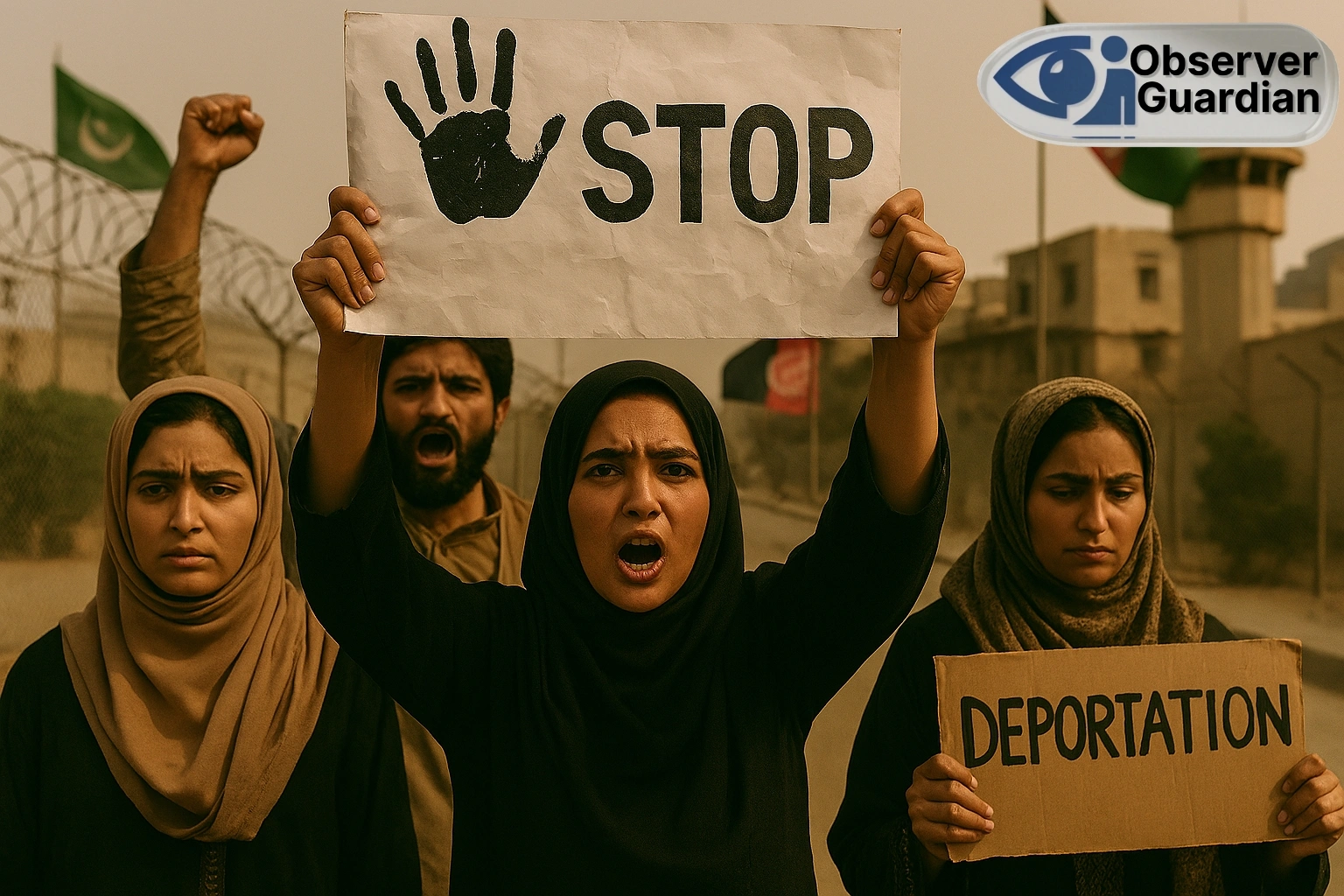Recently, the Afghanistan Media Support Organization (AMSO) has reiterated the need to reinstate those deported Afghan journalists into the country. This is not a simple problem; it is a dilemma of humanitarian responsibilities and national security and stability. AMSO cautions that deportation of Afghan journalists, civil society activists and human rights defenders by neighbour states puts their lives at risk. It undermines the delicate advances of press freedom in the region as well. This case creates potential dangers to both people and risks to global human rights and the freedom of expression in Afghanistan. But the ethical charge of saving the lives of these people is hard to repress since it is also important to face the justified objections of host nations, especially Pakistan, which has treated millions of Afghans over 40 years, an unparalleled act of generosity in the region.
There is no question about Pakistan in this regard. Pakistan hosts more than four million Afghan refugees who have been hosted in the country since 1979 when the Soviet forces invaded Afghanistan. International communities have not really assisted these refugees. This kind of hospitality is rather exceptional in recent times. Most Pakistani cities have expanded in size as complete Afghan communities have moved to them. These communities have enjoyed improved access to health-care facilities, education and employment. This was the opposite of what was happening in Afghanistan that was besieged with conflict. But it has been hard to offer this sort of support. It has posed a heavy burden on the economy of Pakistan, its infrastructure and security mechanisms.

One should keep in mind that the deception of the deportation policies is not peculiar to Pakistan or Iran. Afghan refugees have been deported in the United States and European nations due to relatively low offenses and offenses that are not associated with security issues even. Deportations like these are usually carried out with less reproach or attention as is the case in Islamabad. The difference in how the globe viewed it is disturbing, and it implies a double standard. The rich countries with sound immigration policies do not raise an international furore, yet Pakistan, a developing state that is combating terrorism, economic instability, and political uncertainty, is anticipated to have an open door policy forever.
In view of the Pakistani policymaker, the issue does not only concern compassion; survival is at stake. The immigration crackdown by the Americans and Europeans will obviously shift the migratory pressure on the migratory countries such as Pakistan which is already finding it hard to meet the needs of its citizens.
Besides, the issue of security is not hypothetical. Islamabad has been growing increasingly uneasy over the presence of groups including but not limited to the Tehreek-e-Taliban Pakistan (TTP), the Balochistan Liberation Army (BLA) and Islamic State Khorasan Province (ISKP) functioning off Afghan soil.
Failure or reluctance by the Taliban government to control such activities has exposed Pakistan to cross-border militancy, and therefore, refereeing of refugee affairs is not only advisable, but imperative.
This is the background to why singling out Pakistan to be criticized over the effort of repatriating refugees is unfair. When a single nation in a region is criticized to the extreme, the whole picture is missing. The misery of Afghan refugees is a concern of various countries in the region. Their plight should not be the responsibility of a single country. These issues are decades in the making, and are a result of war, political instability, bad governance, and domestic issues in Afghanistan itself, issues that have been exacerbated by irregular international involvement. Blame on specific states is not only misleading, but also counter-productive since it reduces cooperation towards implementing long term solutions.

However, one very important dimension, which should not be overlooked, is the fact that Taliban are continuing to suppress free expression. Since assuming power, the interim Afghan government has strategically suppressed criticisms, closed information outlets and threatened the newsmen to silence themselves or leave the country.
In case of deportation of Afghan journalists, who are mostly women and members of the current regime that is opposed to Taliban rule, deportation back to countries which they took refuge in may lead to imprisonment, torture or even death.
The initiative undertaken by AMSO under this perspective is on time and ethically critical. However, the safety of these defenceless people cannot really be left upon the benevolence of Pakistan or Iran, it is the moral duty of the international community.
There should be subtlety on how to report these realities in responsible journalism. Exiled media professionals in Afghanistan are in a just cause in demanding their safety, but it would be beneficial to them to be mindful of the longtime Pakistan has been a haven and the current limitations faced. The decision of repatriating some Afghan refugees might not have motives of malice, but to ensure state security and economic strengths. Islamabad is facing inflationary pressures, a political crisis and an increasingly escalating threat of terrorism; its millions of refugees simply cannot be maintained indefinitely by any single government no matter how well intentioned it is.
After NATO and ISAF troops left Afghanistan in 2021, the country reopened its border with Pakistan where thousands fled Taliban vengeance. Most of them included journalists, activists and former security officers, whose lives were at imminent danger. Pakistan accepted them as refugees due to humanitarian grounds as its internal situation was unstable. Nevertheless, a short term asylum was never intended to turn into a long lasting solution, not least during the lack of efficient international burden sharing.

Humanitarian compassion and practical policy should exist side by side, an uncomfortable truth is. Although the concerns of AMSO regarding the safety of journalists are really justified, it is not realistic to insist that Pakistan alone needs to take this burden. Ineffective coordination of response at international level implies that without relocation schemes, third country asylum opportunities, and economic assistance to the host countries, the displacement, insecurity, and resentment circle is going to continue.
There must be a transition more toward a nonpolitical blame to collaborative problem-solving. Despite all its failures, Iran and Pakistan have had a disproportionate share of burden with the displaced populations in Afghanistan. The West, international agencies and regional allies need to contribute their bit, not in words but with real commitments: fast track asylum processing, refugee welfare grants, and diplomacy to compel the Taliban to comply with basic human rights.
Disclaimer: The views and opinions expressed in this article are exclusively those of the author and do not reflect the official stance, policies, or perspectives of the Platform.








